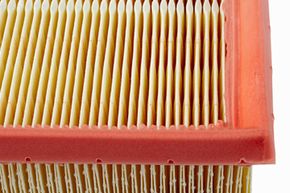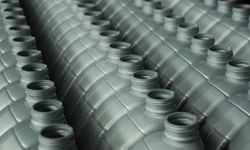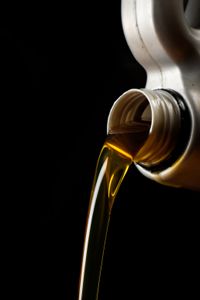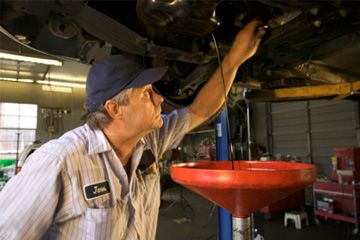As the motivating force behind your automobile, the engine deserves lots of respect and care: if your car engine gives out, you're going...well, nowhere.
You could also be out a hefty chunk of change, since engine repairs often involve complicated and time-consuming work by a technician. Two unassuming, relatively cheap auto parts can help you keep your engine healthy and smooth-running for a long time. The only "catch" is that they get so dirty you occasionally have to replace them.
Advertisement
We're talking about air filters and oil filters. It seems you can't watch a car-related show on TV without some company hawking its brand of filters as superior to the rest. But just how, exactly, do air and oil filters affect your car's engine? In this article, we'll filter the facts from the marketing fiction.
First, let's look at how air filters help an engine breathe more easily. Check the grill and front license plate area of your car or truck after a late-night drive in warm weather. Pretty disgusting, huh? The splattered bugs, sap, leaves and other grime you see on the outside can also make its way into the engine bay. Water can get in there, too. If the bugs and other road-grime make it past the air intake and into the engine itself, it can cause abrasion or corrosion -- two things you definitely don't want.
An air filter catches all the above-mentioned crud long before it can get to the engine. Often, the filter will be protected in a plastic box, to even further guard the engine from contaminants. If you let an air filter get too dirty, it will starve the engine of air, which the combustion process needs to make power most efficiently. Theoretically, an air filter could get so dirty that the engine wouldn't run. But what's more likely is that a dirty air filter will deprive the engine of just enough air to hamper performance. Research with modern, fuel-injected cars shows that a filthy air filter can significantly rob an engine of power, but won't affect fuel economy all that much [source: Norman, et al].
Your typical oil filter, perhaps the size of a coffee mug, performs a crucially important job for such a small package. Much like your own body's kidneys clean your blood, a car's oil filter scrubs automotive blood -- engine oil -- of impurities. Specks of dirt and metal shavings act like miniature sandblasters when they float suspended in engine oil. Their abrasive ways can especially wear down engine bearings, leading to low oil pressure. That, in turn, could lead to big-time engine damage. Over time, an oil filter gets so clogged with impurities that it no longer effectively cleans the oil -- dirty oil just keeps recirculating around the engine. In essence, the oil filter shields your engine from harmful floating garbage.
There are certain items on your car that you can procrastinate on replacing -- and at worst they'll just mildly irritate you. That tacky air freshener that lost its scent seven months ago, for instance. But because of how important air and oil filters are to your engine's health and well-being, they're two replaceable parts you'll definitely want to service on schedule. Check your vehicle's owner's manual to see how often your filters should be replaced and the proper size for new ones.
Advertisement



